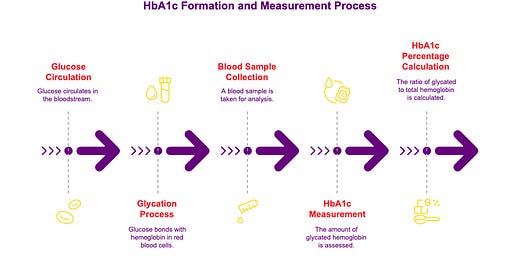HbA1c: When Your Blood Cells Refuse to Retire - A Carnivore's Guide to Glycated Confusion
Understanding the Science Behind 'High' HbA1c in Metabolically Healthy Carnivores
During years of working with type 2 diabetes and monitoring blood tests, I began noticing an intriguing anomaly. Patients who meticulously recorded their daily blood glucose consistently showed excellent readings—averaging around 80 mg/dL—with lab tests revealing low fasting blood glucose, insulin, and C‑peptide levels, all indicators of good glycemic control and insulin sensitivity. However, those following Keto or carnivore diets often presented with a progressively higher HbA1c. It turned out that the “panic” over elevated HbA1c values was largely a mathematical artifact—the calculation assumes a standard red blood cell lifespan, and factors such as altered turnover can skew the numbers.
In simple terms, while direct measurements like daily glucose levels and fasting labs painted a picture of optimal control, the HbA1c was misleading due to its inherent dependence on factors beyond just glucose concentration. This discovery highlighted the importance of understanding the nuances be…
Keep reading with a 7-day free trial
Subscribe to Stephen Thomas BSc (Hons) Substack to keep reading this post and get 7 days of free access to the full post archives.




